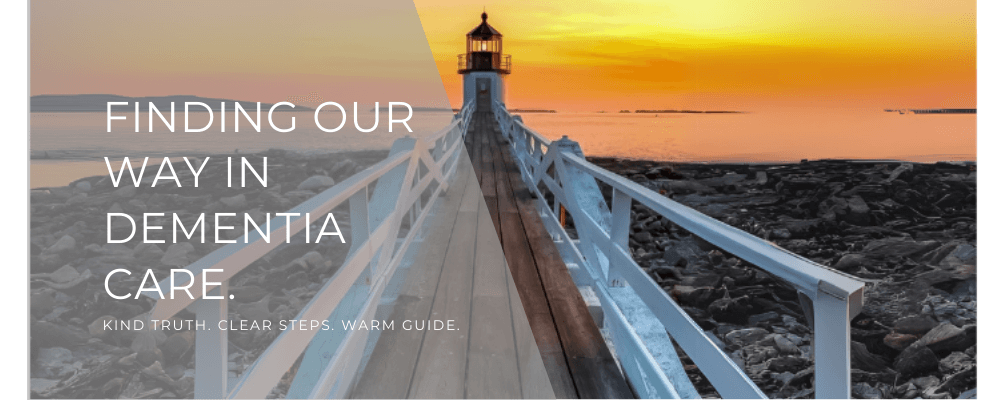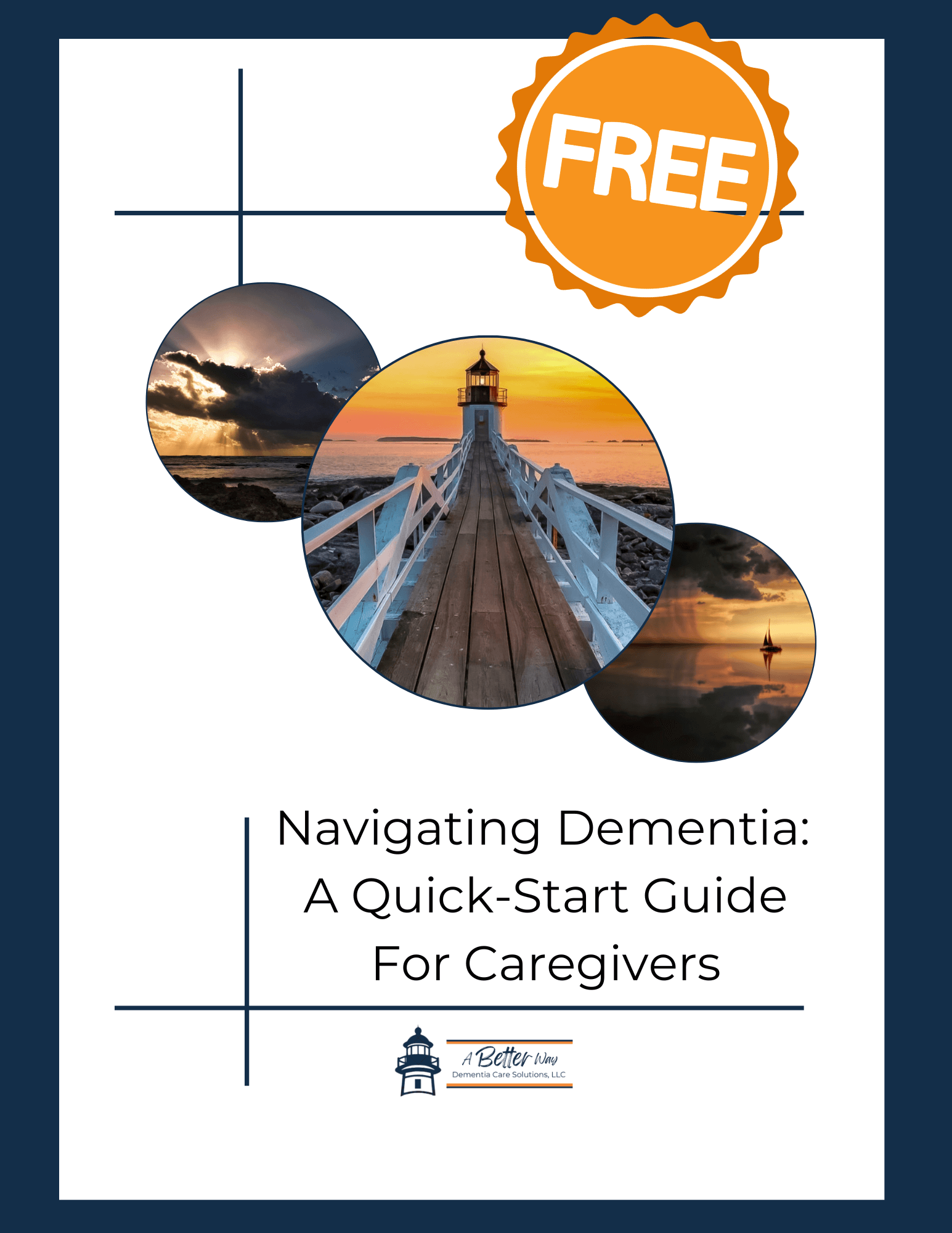
GUIDE Is a Start, Not the Finish Line
The GUIDE Program has been called a game-changer for dementia care. It offers caregiver education, respite, 24/7 support, and a Care Navigator to guide you through the maze of dementia care. For families who qualify, GUIDE is a relief and a lifeline.
But what if you do not qualify? Or what if GUIDE helps in some areas but still leaves you feeling unsupported in others? That is the reality for many caregivers. GUIDE is powerful, but it is not perfect. It cannot be. Dementia care is too complex for one program to meet every need.
That is why it is important to understand GUIDE as one piece of the puzzle. It is a strong foundation, but most families will need additional tools, supports, and resources to create a full circle of care. In this article, we will look at what GUIDE does not cover, why those gaps matter, and practical ways to fill them.
What GUIDE Does Not Cover
Every program has limitations, and GUIDE is no exception. Knowing where the gaps are helps you prepare and advocate for more support. Here are some of the areas GUIDE does not fully address:
- Emotional support. GUIDE provides caregiver education and a navigator, but it does not replace ongoing emotional support such as therapy, coaching, or peer groups.
- Equity and access barriers. Families in rural areas, those with limited internet, or those who face language and cultural barriers may find it harder to access GUIDE services.
- Limited respite funding. Respite is capped at $2,500 per year and only available for families in certain complexity tiers. That leaves many caregivers without enough relief.
- Navigating local services. GUIDE can connect families to community resources, but availability varies widely by location. Some areas simply do not have the programs caregivers need.
A Major Limitation: Medicare Advantage Exclusion
One of the biggest gaps in the GUIDE Program is that it is only available to people with Original Medicare (Parts A and B). Families enrolled in Medicare Advantage or PACE plans cannot currently access GUIDE services.
This exclusion affects millions of caregivers. Medicare Advantage plans are popular because they often have lower monthly premiums and added benefits like vision or dental coverage. But those extras do not make up for the lack of access to GUIDE.
If the person you care for is on a Medicare Advantage plan, GUIDE is not an option at this time. That means you will need to look elsewhere for caregiver training, respite, and support. While CMS may choose to expand GUIDE in the future, there is no guarantee. For now, Advantage families must build their own networks of support.
Practical Ways to Fill the Gaps
Whether you are excluded from GUIDE or simply find it does not cover everything you need, there are practical ways to strengthen your caregiving journey.
- Emotional support. Consider joining a private support group or working with a caregiver coach who understands dementia care. Talking with people who get it can ease isolation.
- Advocacy. Bring your questions and concerns to doctors and care teams. Ask about additional resources and do not hesitate to request referrals to social workers or specialists.
- Self-care routines. Even if respite is limited, build in micro-breaks during the day. Ten minutes of journaling, stretching, or deep breathing can help reset your stress level.
- Technology. Use apps or devices to help manage medications, track appointments, or set reminders. These small tools can reduce your mental load.
- Community-based programs. Look to your local Area Agency on Aging, the Alzheimer’s Association, or faith-based organizations for programs that may fill in what GUIDE does not provide.
Additional Tools Caregivers Can Use
Beyond GUIDE, caregivers often benefit from structured tools that make daily life more manageable. Here are a few examples you can explore (affiliate links included):
- Caregiver planners. Writing down schedules, medications, and daily notes can help reduce confusion and provide a sense of control. A dedicated caregiver planner such as can keep everything organized in one place.
- Caregiver journal. Putting your thoughts, feelings, and experiences down on paper can be incredibly effective for working though the stresses of caregiving. Check out this caregiver journal on Amazon.
- Home safety supports. Simple items like grab bars, non-slip mats, and motion-sensing night lights can prevent falls and increase safety. Consider bathroom grab bars or motion-sensor night lights to reduce risks in the home.
- Nutrition supports. Mealtime often becomes a challenge in dementia care. Adaptive utensils and meal prep containers can make meals easier for both you and the person you care for.
- Stress relief tools. Creative outlets such as adult coloring books for relaxation or aromatherapy diffusers can provide small but powerful moments of calm.
These may seem small compared to the scale of dementia care, but small steps often create the biggest impact in daily life.
Journal Prompt for Caregivers
Take a few minutes to reflect: What part of my caregiving journey feels most unsupported right now? What is one step I could take this week to ease that burden, even in a small way?
You Deserve More Support
GUIDE is a powerful step forward, but it is not the whole answer. It is okay to ask for more, to seek out resources beyond what CMS provides, and to create a web of support that truly meets your needs. If you’re feeling unsure how to put these ideas into practice, I can help. My virtual dementia care coaching program is designed to help caregivers build customized routines, communication strategies, and stress-management tools that fit real life. Together, we’ll identify what’s working, simplify what’s not, and create a plan that makes caregiving feel more manageable. Click here to connect with me.
GUIDE Blog Series Wrap Up
Caring for someone with dementia is never simple, but you do not have to do it alone. Our four part GUIDE series walks you through everything you need to know about the CMS GUIDE Program, from what it is and who qualifies, to how it helps caregivers and people living with dementia, and finally, what to do when GUIDE does not cover everything you need. Together, these posts give you a clear, compassionate roadmap to make caregiving more manageable and less overwhelming.
Read the full series here:
- The GUIDE Program Explained: What Dementia Caregivers Need to Know
- GUIDE Eligibility and Enrollment: Step by Step for Dementia Caregivers
- How GUIDE Helps You and the Person With Dementia You Care For
- Beyond GUIDE Filling the Gaps With Extra Dementia Caregiver Support (this post)
Notes
- Centers for Medicare & Medicaid Services (CMS). GUIDE Model Overview. Retrieved from https://www.cms.gov/priorities/innovation/innovation-models/guide
- Centers for Medicare & Medicaid Services (CMS). GUIDE Model Fact Sheet (Patient and Caregiver). Retrieved from https://www.cms.gov/files/document/guide-model-patient-caregiver-fs.pdf
- Centers for Medicare & Medicaid Services (CMS). GUIDE Model FAQs. Retrieved from https://www.cms.gov/priorities/innovation/guide/faqs
- Alzheimer’s Association. Medicare GUIDE Program for Dementia Care. Retrieved from https://www.alz.org/help-support/caregiving/financial-legal-planning/medicare-guide-program-for-dementia-care
- ThoroughCare. CMS GUIDE Program: Support for Dementia Patients and Caregivers. Retrieved from https://www.thoroughcare.net/blog/cms-guide-program-dementia-patients-caregivers
Affiliate Disclosure
A Better Way - Dementia Care Solutions, LLC participates in the Amazon Associates Program, which means we earn a small commission when you buy through links on our site, at no extra cost to you. We only recommend products that we believe can help caregivers on their journey.
Disclaimer
The information provided in this blog is for educational purposes only and should not be considered medical advice. Always consult with a doctor or a licensed physical therapist before following any recommendations mentioned. Every individuals needs are different, and professional guidance is essential to ensure safety and appropriateness of care.
Want to keep figuring this out together?
Subscribe to Finding Our Way in Dementia Care and get honest stories, helpful tips, and gentle support delivered to your inbox every week. Just real talk, grounded care, and space to breathe.
Subscribe to Finding Our Way in Dementia Care and get honest stories, helpful tips, and gentle support delivered to your inbox every week. Just real talk, grounded care, and space to breathe.
Kind truth. Clear steps. Warm guide.

















0 Comments